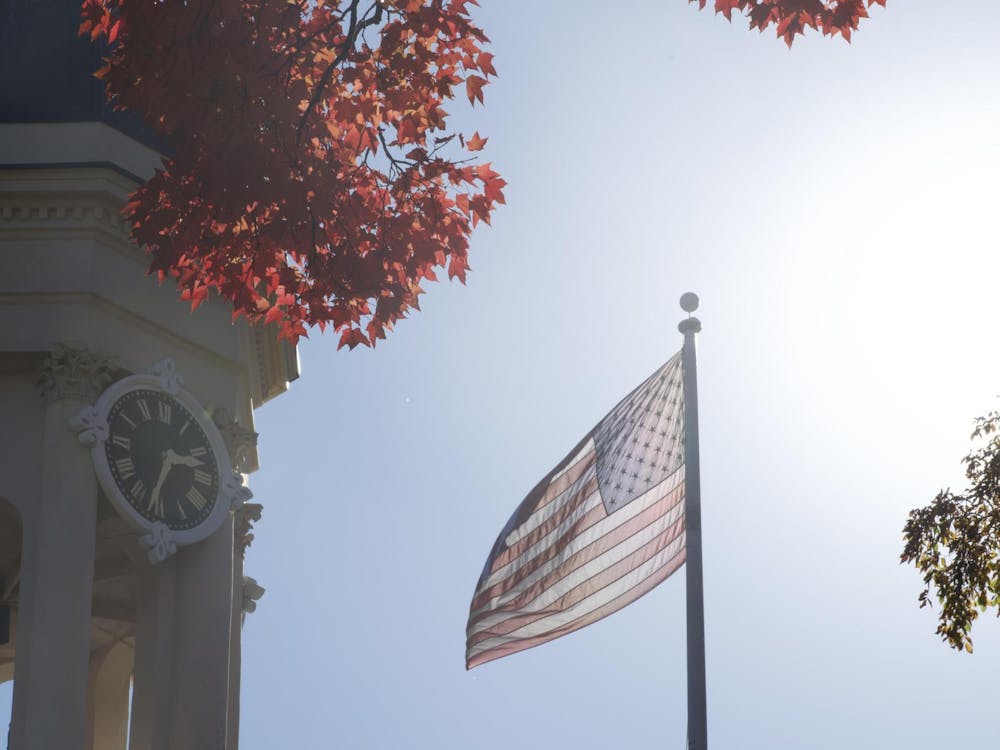“It is a truism that all Ivy League students experience imposter syndrome at some point,” says the description for “Overcoming Imposter Syndrome,” an event hosted by Princeton University Health Services in March 2019.
The American Psychological Association defines imposter syndrome as “the situation in which highly accomplished, successful individuals paradoxically believe they are frauds who ultimately will fail and be unmasked as incompetent.”
While the University does not have specific statistics on rates of imposter syndrome within the student body, imposter syndrome is just one piece of a larger picture of mental health on campus.
According to the University’s Senior Survey Year End Assessment from this past spring, which gathers results from across campus, 27 percent of the 3,210 respondents reported moderate to severe depression. 30 percent of Black students, 28 percent of Native American/Pacific Islander/two or more races students, and 27 percent of Hispanic students reported moderate to severe depression compared to the 22 percent of white and Asian students who reported such experiences. The ‘Prince’ was granted access to this confidential data by Deputy University Spokesperson Michael Hotchkiss.
First generation students and low income (FLI) students were more likely to experience moderate to severe depression. 27 percent of female students answered in that manner, compared to the 17 percent of male students. Results were similar for students experiencing moderate to severe anxiety. Although the survey does not gather data on imposter syndrome, students cite the condition as one of the predominant mental health concerns they struggle with.
“I’d say that [imposter syndrome is] kind of on everyone’s mind,” said Sophie Steidle ’25. “We're [first-year students] all in this kind of honeymoon phase of being here and I feel as though it wasn't really apparent during the first couple of weeks, cause everybody was just so excited, but once courses started picking up and academically things started getting harder, it's now more apparent.”
Eliza Schaffer ’24 said that she doesn’t know anyone who thinks that they completely belong at Princeton. For students like her whose first year was entirely virtual, the end of what Streidle called the “honeymoon phase” of the first year was exacerbated by the pandemic and the lack of other students around to contextualize the difficulty of the Princeton workload.
“I had no meter to gauge how well I should be doing or how much work I should be doing, so I did everything because I assumed everyone else was too,” Schaffer said.

“I can’t believe people do this every year,” she remembered thinking at the time.
Schaffer is a copy staffer for the ‘Prince.’
“In the fall when we were all at home, that also added to a sense of imposter syndrome because being at home means different things for different people,” said Londy Hernandez ’23.
Like many students, Hernandez didn't have immediate access to quiet spaces to work and take classes.

“I didn't have a specific place where I could be and so I was in different parts of the house and my house is loud as hell. Sometimes I didn't have a space so I didn't feel comfortable having my camera on,” said Hernandez. “Whereas for other students I feel like, I don't know, I heard of kids that have mansions, I think that really exemplified that difference.”
Although the return to campus alleviated this particular stress, it also brought with it a different set of ways that students experience imposter syndrome. Schaffer mentions her experiences with money at Princeton.
“Here more than other places you encounter people where money just isn't even something that crosses their mind,” she said.
Going out to eat with friends, for example, might not mean anything to some students, but for others who are living on tighter budgets, it can contribute to “feeling out of place in general.”
Personal circumstances, particularly socioeconomic status, can be paramount in determining a student’s sense of belonging at the University. Equally subject to feelings of imposter syndrome is their experience in the classroom.
“My imposter syndrome is very predominant in my STEM classes, when students will have done so much prep work in their own high schools because they went to private, really high-funded education, and I went to public school,” said Diego Solorio ’24, an astrophysics major interested in science communication.
The consequences on students’ sense of belonging extends to representation disparities in faculty, as well.
“When it's always white men leading the classes, I always feel like there's an invisible barrier separating me from getting to that level,” Solorio said. “When I have a POC professor, I feel like the dream is real.”
Due to its prevalence among the student body, imposter syndrome is not an invisible problem on campus. Some professors are trying to help students out by incorporating consideration of imposter syndrome into their teaching methods. Professor Kasey Wagoner teaches PHY 101: Introductory Physics I, which is a “survey course” that provides a rapid introduction to a wide range of topics within physics.
“Some students that come in have taken a pretty rigorous high school physics course and a lot of students haven’t ever had a physics course, and then there’s everything in between,” Wagoner said. “My goal is to make it so that no matter what your preparation is, you can come in and succeed.”
His efforts seem to be paying off. He says he’s gotten good feedback after increasing the time allowed for exams from 90 minutes to four hours.
“[Students have said] ‘I was able to do this midterm and feel like it was an exam of my knowledge and not an exam of how fast I can get through it,’” he said. He also allows students to retake quizzes. According to Wagoner, the average results of quiz retakes is always higher than the average of the grades from the first go around.
Across campus, Professor Joshua Billings, the Director of Undergraduate Studies in the classics department, acknowledges that there are often concerns about how much the field appeals to students who aren’t of European descent.
“Classics, if studied thoughtfully and open-mindedly and accurately, is much broader than Europe, it is much more multicultural than what we think of as white,” he said. “As a department we hope to present a broader view of the world. Telling the story of the ancient world accurately is telling the story of a less monolithic culture than I think many people imagine.”
Through this mindset, the classics department also hopes to open its doors to students with a wide range of experience and background in classical studies in an effort to make all students feel welcomed and capable in the academic space.
Professor Michael Hecht, too, pushes his students to discard preconceived notions about what it means or looks like to be a Princeton student. He currently teaches CHM 201: General Chemistry I, but he used to be the Head of College at Forbes. He recalls telling students to “spend the next four years being here, not trying to get into Princeton” in his welcoming address to incoming Forbes freshmen.
Like Professor Wagoner, he does what he can in his classroom to make students feel that the material is accessible. He tries to make his exams “user friendly” by asking his TAs to submit exam questions and then “test drive” the exam and provide feedback to ensure the exam is as clear as possible. He feels that the goal is to get his students to “look at the material and say ‘wow this is really cool!’”
To Professor Hecht, the goal of “effortless perfection” means that in a school full of valedictorians, everyone is keeping up the illusion of the graceful swan gliding over the water. But in reality, he says, each of us, professors included, is paddling rapidly under the surface wondering: “How did I get here?”
Mei Geller is a contributing Features writer for The Daily Princetonian. She can be reached at mcgeller@princeton.edu.








